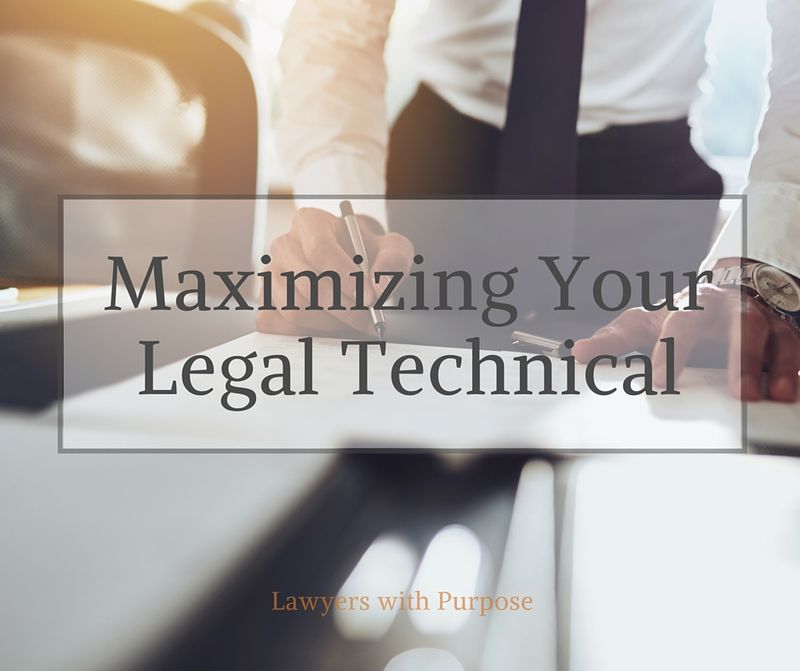Lawyers with Purpose is getting ready for some exciting changes in our legal technical training. Over the past several months, as my calendar has been freed up to provide one-on-one legal training and file reviews with members, case-specific questions for the Live Case Study review have slowly faded. As such, we are restructuring the Monday afternoon hour to continue to provide members with the most efficient use of your time and the time of your staff. Moving forward, while we will continue to address all questions that are submitted by 5 p.m. Friday on the following Monday, we will be using a large portion of the legal technical hour as an in-depth study of the Lawyers with Purpose system and the many uses of the LWP Client Centered Software.
What You Need To Know About Using Personal Care Plans
How does a personal care plan differ from a healthcare proxy, healthcare power of attorney or a living will? There are two distinctions between the various healthcare directives offered; One, grants authority, expression of personal wishes. A healthcare proxy or healthcare power of attorney grants legal authority to someone else to make medical and healthcare decisions on one’s behalf. A living will and personal care plan, on the other hand, are a mere expression of the wishes one would like to have happen in the event of their inability to make their own healthcare or medical decisions but does not grant authority to anyone to do anything. It is also important to further distinguish the difference between a living will and personal care plan. A living will traditionally identifies as want end of life healthcare preferences. Typically these relate to resuscitation, blood transfusions, incubation, and the like. Typically one initials each treatment you do not want or signs an overall statement states none be performed. The shortfall of a living will is it only deals with "end of life" medical decisions. A personal care plan, on the other hand, identifies your preference regarding lifetime care, after one becomes unable to make their own decisions.
 The LWP™ client centered personal care plan allows clients to identify how often they would like their hair done, the maintenance of their oral hygiene, what they would like to do for entertainment, and hobbies, what to watch on TV, favorite books or authors, foods they commonly eat or do not like to eat, drinks, or continuation of habitual patterns accustomed to (i.e., a glass of wine at night with dinner).
The LWP™ client centered personal care plan allows clients to identify how often they would like their hair done, the maintenance of their oral hygiene, what they would like to do for entertainment, and hobbies, what to watch on TV, favorite books or authors, foods they commonly eat or do not like to eat, drinks, or continuation of habitual patterns accustomed to (i.e., a glass of wine at night with dinner).
A personal care plan also expresses wishes for attending family events and the terms and conditions of attending them. Most provide that, in attending family events, they are not a "burden" to their loved ones and are able to "derive enjoyment" from it. A personal care plan also provides instructions regarding end of life and integrates all wishes expressed with the authorities granted in the healthcare proxy or healthcare power of attorney. A properly drafted personal care plan also addresses the client's feelings on organ donation, and even funeral and burial instructions. Another great use of personal care plans are for disabled children, created by their parent or guardian to ensure their needs are provided after the parent’s ability to do so.
Now that we are clear on what a personal plan is, is it enforceable? Most states have laws providing that written expression of wishes shall be considered in the care of those who write them. The real question is can you ensure someone will do it? The best way to ensure the plan is followed is to integrate the personal care plan with the clients trust to require the trustee to carry out all of its terms set out in the personal care plan. Allowing the trustee to utilize the assets of the trust, can ensure one’s wishes are maintained. But on a more practical level, a personal care plan serves as a set of instructions for the family so they feel helpful in the care provided for their loved one. A properly drawn personal care plan is a great tool to ensure the client is receiving the care designed as outlined in the personal care plan and more importantly alleviates the stress and guilt for those that love the individual to help provide them what the individual had hoped. Having a personal care plan, clearly beats hanging out in a wheelchair all day in front of a TV.
Don't you agree?
If you want to learn more about Lawyers With Purpose and what we have to offer, join our Thursday, March 12th at 4EST or 7EST for our "Having The Time To Have It All… 3 Time Strategies To Have A Practice With Profit And Purpose".
If you're a Lawyers With Purpose member you already have access to this information on the members website!
David J. Zumpano, Esq, CPA, Co-founder Lawyers With Purpose, Founder and Senior Partner of Estate Planning Law Center
The Veterans Administration Proposes 3 Year Look Back On Gifts
On Friday, January 23, 2015, the VA issued proposed new Veterans Administration regulations that would penalize wartime veterans up to ten years for making gifts of assets for less than fair market value. The VA is trying to stop what they perceive as lawyers and financial advisors “taking advantage of veterans” when helping them strategically plan to preserve assets and qualify for the Improved Pension benefit.
The proposed changes in regulations would:
- Establish a 3 year look back for gifts
- Impose penalties for up to 10 years
- Create a bright-line net worth standard of $119,220, which includes annual income
- Deny any expenses related to independent living facilities as care costs
- Require Veterans to sell their home place property if the lot coverage exceeds 2 acres.
 How will this work? When a veteran or widow of a veteran applies for the Improved Pension with Aid and Attendance, the VA will ask if any transfers of assets for less than fair market value have been made in the three years prior to the application. If so, the VA will presume it was for the purpose of meeting the VA eligibility standards.
How will this work? When a veteran or widow of a veteran applies for the Improved Pension with Aid and Attendance, the VA will ask if any transfers of assets for less than fair market value have been made in the three years prior to the application. If so, the VA will presume it was for the purpose of meeting the VA eligibility standards.
Penalized gifts include gifts of money or assets to children or others, establishing estate plans with the use of trusts, and establishing retirement plans through the use of annuities which can provide a life time income stream.
When a gift has been determined to have happened during the look back period, the VA will calculate the penalty by dividing the value of the gift by the claimant’s pension rate with aid and attendance. Each classification of claimant varies, thus, the penalty periods will be different depending on who makes the claim. The pension rates with aid and attendance are as follows:
(1) Married veteran = $2,120
(2) Single veteran = $1,788
(3) Widow = $1,149
Thus, if a married veteran gives away $15,000 and a widow gives away $15,000, the widow is penalized almost double that of the veteran. (Married veteran $15,000 divided by $2,120 = 7 month penalty; widow $15,000 divided by $1,149 = 13 month penalty.)
Also, because the “net worth” standard will include income, high income earners will be allowed to have low to no savings for emergency items; whereas, very low income earners will be permitted to keep much more in savings. Because of the strict ruling on how the VA plans to define “medical care,” veterans who have dementia, Alzheimer’s Disease or other degenerative diseases and live in independent living facilities because they no longer drive and need a safe environment in which to live, will not be eligible for the benefits because they may not yet the hands on care for bathing, dressing, eating, toileting or transferring (ADLs). Although they are unsafe to live at home due to their health care condition of cognitive decline, the VA refuses to consider any expenses of care for a facility as deductible from the claimant’s income unless the claimant needs assistance with no less than 2 ADLs.
Between 2012 and 2014, Congress introduced two different bills, each imposing a three year look back penalty. Both bills were died. Nevertheless, the VA is moving forward on their own to create the look back and penalties. These changes will not only hurt wartime veterans, specifically WWII and Korean war vets, but it will further exacerbate the enormous claims back logs that already exist.
To fight this from happening, everyone who cares about a veteran must respond. Public comments must be received no later than March 24, 2015 and can be sent through http://www.regulations.gov or by mail or hand-delivery to: Director, Regulation Policy and Management (02REG), Department of Veterans Affairs, 810 Vermont Ave. NW., Room 1068, Washington, DC 20420; or by fax to (202) 273-9026. Comments must include that they are in response to “RIN 2900-AO73, Net Worth, Asset Transfers, and Income Exclusions for Needs-Based Benefits.”
Victoria L. Collier, Veteran of the United States Air Force, 1989-1995 and United States Army Reserves, 2001-2004. Victoria is a Certified Elder Law Attorney through the National Elder Law Foundation, Author of 47 Secret Veterans Benefits for Seniors, Author of Paying for Long Term Care: Financial Help for Wartime Veterans: The VA Aid & Attendance Benefit, Founder of The Elder & Disability Law Firm of Victoria L. Collier, PC, Co-Founder of Lawyers for Wartime Veterans, Co-Founder of Veterans Advocate Group of America.
If are in the Charlotte NC, area, or will be attending our Practice With Purpose Program or our Tri Annual Practice Enhancement Retreat, consider joining Victoria for her Specialty Program on Wednesday, February 4th, and get your initial VA Accreditation through the VA. If you provide legal advice to Veterans about specific VA claims, to include drafting asset protection trusts for VA Benefit qualifications, you MUST be accredited by the VA. Contact Molly Hall at mhall@lawyerswithpurpose.com for registration information.
** Before attending this course, you must have submitted an Application for Accreditation, VA Form 21a, to the Office of General Counsel and received approval.
VA Benefits Training – Not Just For Lawyers
VA Pension Benefits Expert, Victoria Collier, is providing a live three hour VA Accreditation Training on February 4, 2015 in Charlotte, NC for just $249! But space is limited so register today!
The course meets all the initial accreditation requirements as well as on-going VA accreditation needs.
While that is essential for lawyers to continue to help Veterans, the course is also very instructive for support staff who actually do the day-to-day work to push the applications through. Although legal assistants and paralegals will not get CLE credit to take this course, it is an excellent primer and update of what’s happening now at the VA. Every person in the office who touches your VA claims would benefit from this training.
Make a commitment to train yourself and train your staff. You can learn together at the next live event hosted by Lawyers With Purpose. To register email Kyle Russ @ kruss@lawyerswithpurpose.com.
Lawyers With Purpose
** Before attending the course, you must have submitted an Application for Accreditation, VA Form 21a, to the Office Of General Counsel and received approval.**
The VA Rejected My Claim
The attorney of a wartime veteran filed a claim for pension with aid and attendance, just like he had done many times before, using VA Form 21-526, Veterans Application for Compensation and/or Pension. Yet, this time was different. His claim was denied for submitting the wrong form.
 How can this be the wrong form? It says right in the title of the form, Veterans Application for Compensation and/or Pension. Pension is the benefit being sought. The most recently published form is November 2014, thus, the form itself is not outdated.
How can this be the wrong form? It says right in the title of the form, Veterans Application for Compensation and/or Pension. Pension is the benefit being sought. The most recently published form is November 2014, thus, the form itself is not outdated.
I cannot answer the above question. What I can share to all advocates who are accredited by the VA to assist veterans with claims is that the VA prefers, and is apparently requiring, that all claims be submitted through the Fully Developed Claims (FDC) process. There are specific application forms for this.
For Veterans filing a claim for service connected disability benefits, use VA Form 21-526EZ, published in January 2014.
For Veterans filing a claim for Improved Pension (which may include aid and attendance), the VA Form 21-527EZ is the appropriate form. It was published in August 2011, which is still the most current form to use.
For Widows of Veterans, the 21-534EZ must be used, which is dated June 2014.
Unfortunately, what can be confusing is that the other, non-FDC application for widows, 21-534 (without the EZ), is also still available to file and was also published on June 2014. Like the 21-526, which permits a person to file an application for pension, the 21-534 (without the EZ) may be rejected because it is not on the EZ form. As long as the claim is filed on a currently available, currently published (not superseded) form, then the VA should accept the claim, even if not on the EZ form. Go to: http://www.va.gov/vaforms/ to obtain the most current forms available.
What do you do if you filed an application for benefits but it was rejected or denied for having been filed on the “wrong” form? Submit a new application using the correct form. The good news, per the current law, is that even though the wrong form was completed, filed and rejected, the VA must still treat that “communication or action” as an “informal claim” for benefits. The advantage of “informal claim” recognition is that the filing of an informal claim “locks in” the eligibility date for approval of benefits. Thus, even though it feels like you are starting over with the claim, the approval should be retroactive to when the original claim was filed, albeit on the incorrect form. Time in processing the claim may be lost, but not the actual benefit itself during that time.
For more information on the day-to-day operations and expectations of the Veterans Administration, become a member of Lawyers with Purpose and attend our monthly training webinars, led by national Veterans Pension Benefits expert and co-founder of Lawyers with Purpose, Victoria L. Collier, Certified Elder Law Attorney, through the National Elder Law Foundation.
Victoria L. Collier, Certified Elder Law Attorney, Fellow of the National Academy of Elder Law Attorneys, Co-Founder, Lawyers with Purpose, LLC, and author of 47 Secret Veterans’ Benefits for Seniors…Benefits You Have Earned but Don’t Know About.
Victoria Collier has been the leader at teaching lawyers how to help Veterans. She is providing the 3 hour accreditation training on February 4, 2015, in Charlotte, North Carolina for just $249!
Even if you have had the initial accreditation, this course will also meet the on-going accreditation requirements. Each lawyer who is accredited must continue to take 3 hours of CLE every 24 months. In addition to the required information, Victoria will bring you up to date practices by the VA.
If you are just a beginner or a seasoned VA practitioner, you are certain to learn something. And, because it is live training, you will have the opportunity to ask questions. Don’t miss this opportunity! To register contact Kyle Russ at kruss@lawyerswithpurpose.com. Seats are limited so register soon.
** Before attending the course, you must have submitted an Application for Accreditation, VA Form 21a, to the Office of General Counsel and received approval.**


